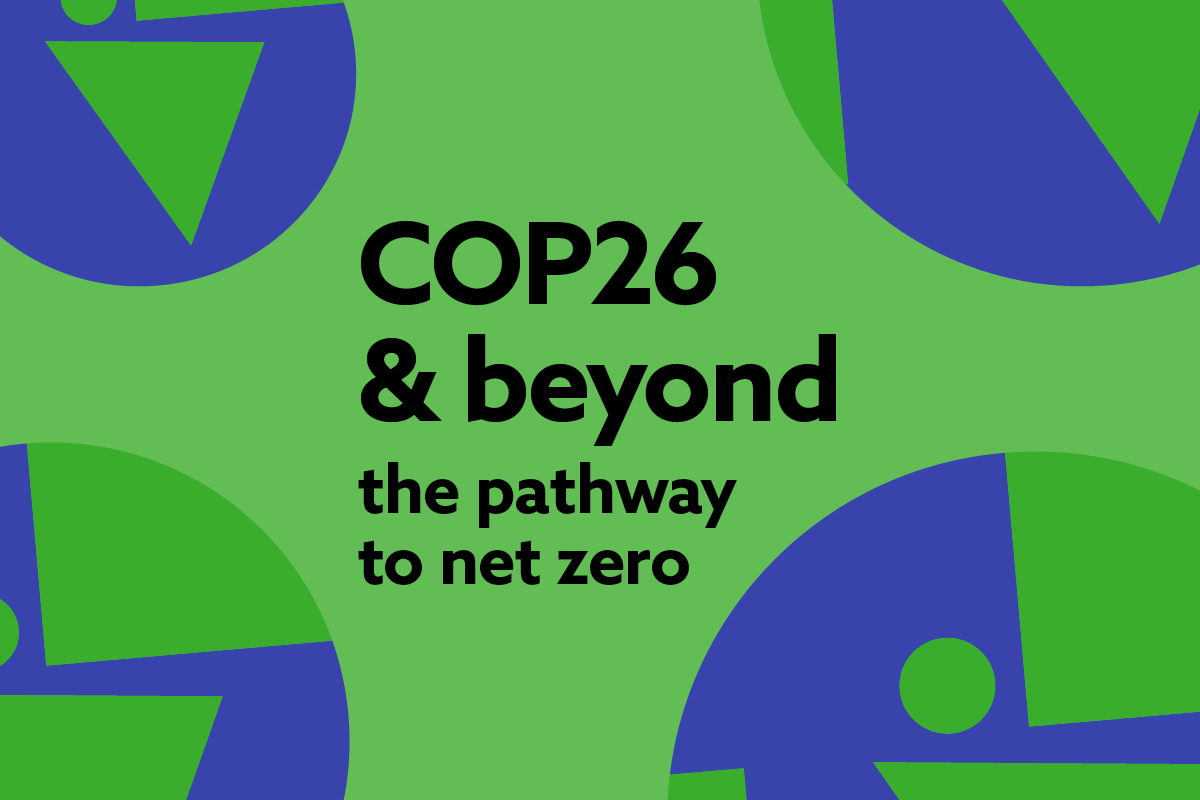COP26 & beyond... the pathway to Net Zero

After the dust has settled following COP26, this half day conference will consider the main outcomes of the summit, the implications of the key commitments and pledges, discuss what was missing and debate the next steps.
Four in depth sessions will explore the opportunities and challenges for the extractive industries, foundation industries
advanced manufacturing & materials applications and research & innovation with a cross-sector panel of senior academic and industry leaders covering aerospace, metals, ceramics, mining, construction, resource management and research.
The final two sessions will explore what was missing at COP26 and discuss what’s next and needed to maintain the momentum and deliver the vital transition to a low carbon, resource efficient future.
Programme
| Time | Speaker and Session |
||||
09:00 |
Reflecting on COP26 Dr Emma Wilcox, Chief Executive, Society for the Environment & IOM3 Sustainable Development Group Chair A summary and recap of the climate summit held in Glasgow last November including the key outcomes, commitments, and pledges. |
||||
09:20 |
Opportunities and challenges for the extractive industries Christian Spano, Director, innovation, International Council on Mining and Metals and Ian Bowbrick, Director of Membership and Professional Standards, IOM3 The extractive industries will play a vital role in the transition to net zero. The speakers will consider the key challenges and opportunities for the sector from transitioning to electric and hydrogen-powered technologies, new coal commitments, the changing demand for critical raw materials, delivering the global methane pledge and the role of finance. |
||||
09:50 |
Opportunities and challenges for the foundation industries Chris McDonald, Chief Executive Officer, Materials Processing Institute |
||||
10:20 |
Opportunities and challenges for advanced manufacturing & materials applications Dr Flavie Lowres, Director, Green Thinking Limited & IOM3 Construction Materials Group Chair |
||||
10:50 |
Break |
||||
11:10 |
Opportunities and challenges for research & innovation Professor Mark Jolly, Professor and Director of Manufacturing, Cranfield University Professor Serena Cussen, Head of Department of Materials Science and Engineering, University of Sheffield A collaborative, inclusive and multi-disciplinary approach is required to ensure solutions for adaptation and mitigation are successfully delivered. In the final challenges and opportunities session, the speakers will discuss what COP26 means for research and innovation and explore their role in understanding the problem and delivering solutions that are scalable, sustainable and will deliver meaningful progress. |
||||
11:40 |
What was missing at COP26? Dr Adam Read, Director of External Affairs, SUEZ Although consumption and the circular economy were raised by speakers across sessions in the Blue and Green Zones, the issues of consumption, resource use and waste management were noticeably missing from the main COP26 agenda or at the large number of official fringe events. This session will explore the crucial, but often overlooked, role resource efficiency has to play in meeting our climate targets and how to ensure it has a seat at the policy top table. |
||||
12:00 |
Panel discussion The panel session will be an opportunity for important cross-sector discussion and provide delegates with the chance to pose further questions to speakers. |
||||
12:30 |
What’s next? Dr Colin Church CEO, IOM3 interviewed by Rachel Stonehouse Policy Research Fellow, IOM3 This Q&A session will explore what’s next following COP26 for professionals in materials, minerals and mining. |
||||
12:50 |
Close/Networking |
This event offers in-person tickets as well as live streaming options. All those registered will also receive access to the recordings of the event.























